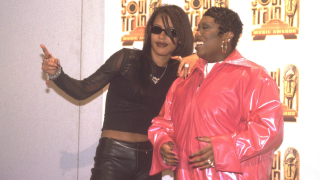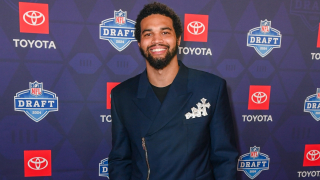In my book When The Tear Won't Fall, I speak very intimately about the death of my father and the funeral thereafter. It was a moment in my life that I share quite often with my friends and the fathers I come across in my work. Losing a father or any family member can be traumatic on so many levels. However for me, my father and his funeral can only be summed it up in this way:
"He left! He left this earth with the answers to all my questions. He left this earth with the things I needed to fill the void in my heart and soul. He left me in this world to always wonder who he was. He left me without any memories of being with him. There’re no habits, sayings, sage advice or skills that I can say I learned from my dad, as there had been no relationship. More importantly, there were NO TEARS. With him gone again, I have nobody to yell at or be angry with but the empty hole he left in my heart; the one thing he did leave behind."
I was reminded of these painfully harsh feelings recently as I counseled a close friend after the loss of her father. She spoke about the unresolved issues of her in-and-out father and how his recent return into her life brought both hope and heartache. He, like mine, and so many fathers like him had a sorted past; a past that included an affair and the creation of a child outside of his marriage.
One might argue that this circumstance is not so strange among black fathers of the 60's and 70's. Reluctantly I may tend to agree that this notion may have some measure of truth given the brash imagery of black men whose persona was bigger than life. Hardcore masculinity on the big screen in Shaft and SuperFly, on the gridiron in Jim Brown and O.J. Simpson, on the hardwood floor in Wilt Chamberlain, in the ring with Muhammad Ali; and lets not forget the array of dope dealers, hustlers and pimps that I saw everyday in my Brooklyn neighborhood.
His decision, just like the decision of my friend's dad (and our moms to a certain extent) didn't release him from his responsibility to be a responsible father. Yet unbeknownst to him and other fathers like him (then and now), that decision set the foundation for a lifelong stint of 'daddy' pain and anger.
In the conversation with my friend, we uncovered that being a dad wasn't the only responsibility they both neglected. What my dad did not realize was that one-day (if nature held its course), he would die and I would have to decide if I would say good-bye on his way out, even though he wasn't there on my way in.
You see, he never established order and validation amongst all of his children; regardless of how we all got here. I have six other brothers whom I have not seen since I walked out of the funeral that day. I was forced to deal with feelings of displacement and abandonment all over again because my father did not cultivate a necessary relationship between his children. Even my friend anguished and agonized for a week following her dad’s death because she did not know how she was going to be accepted and included by her siblings. Fortunately for her, she was received with open arms.
Unfortunately for me, I left with a hole and emptiness in my heart. Imagine the countless others who find themselves in arguments over inclusion in the obituary, fights over knick knacks, speculation about money and insurances, discoveries of additional children nobody knew about and mothers still harboring unresolved pain from the relationship and circumstances (baggage) more than 50 years old. Why!? All because daddy didn't settle all family accounts while he was alive. Whether it’s because he lacked courage or could never find the right time, time ran out for him – as in the case with my dad and I.
I believe one of the toughest emotions to overcome is pain, primarily because the remedy of pain is time. In the book Anger: Facing the Fire Within, June Hunt describes anger as a strong emotion of irritation or agitation that occurs when a need or expectation is not met. Time ran out for my dad and as a result he left behind some pain time has yet to heal. Not only because he left, but he took my six brothers and every answer to every question with him.
I saw a quote the other day that said "what you do for yourself will leave this earth with you, but what you do for others will remain as your legacy." Fathers have an obligation to legitimize their children and continually validate their equal importance. This responsibility is not to be left up to the emotional and protective lenses of mothers, the selfish positioning of siblings or the unnecessary advice of family and friends, but the father who is responsible for ensuring that a legacy of his love remains, long after time has healed the pain.
Braswell is the Executive Director of Fathers Incorporated (FI), a national not-for-profit organization that is committed to eliminating fatherlessness and increasing the commitment of men to become mentors. Braswell also serves as the Director of the National Responsible Fatherhood Clearinghouse (NRFC) spearheading the White House's National Mentoring and Fatherhood initiatives. Facebook: https://www.facebook.com/FathersIncorporated; Twitter: @Fathersincorp













